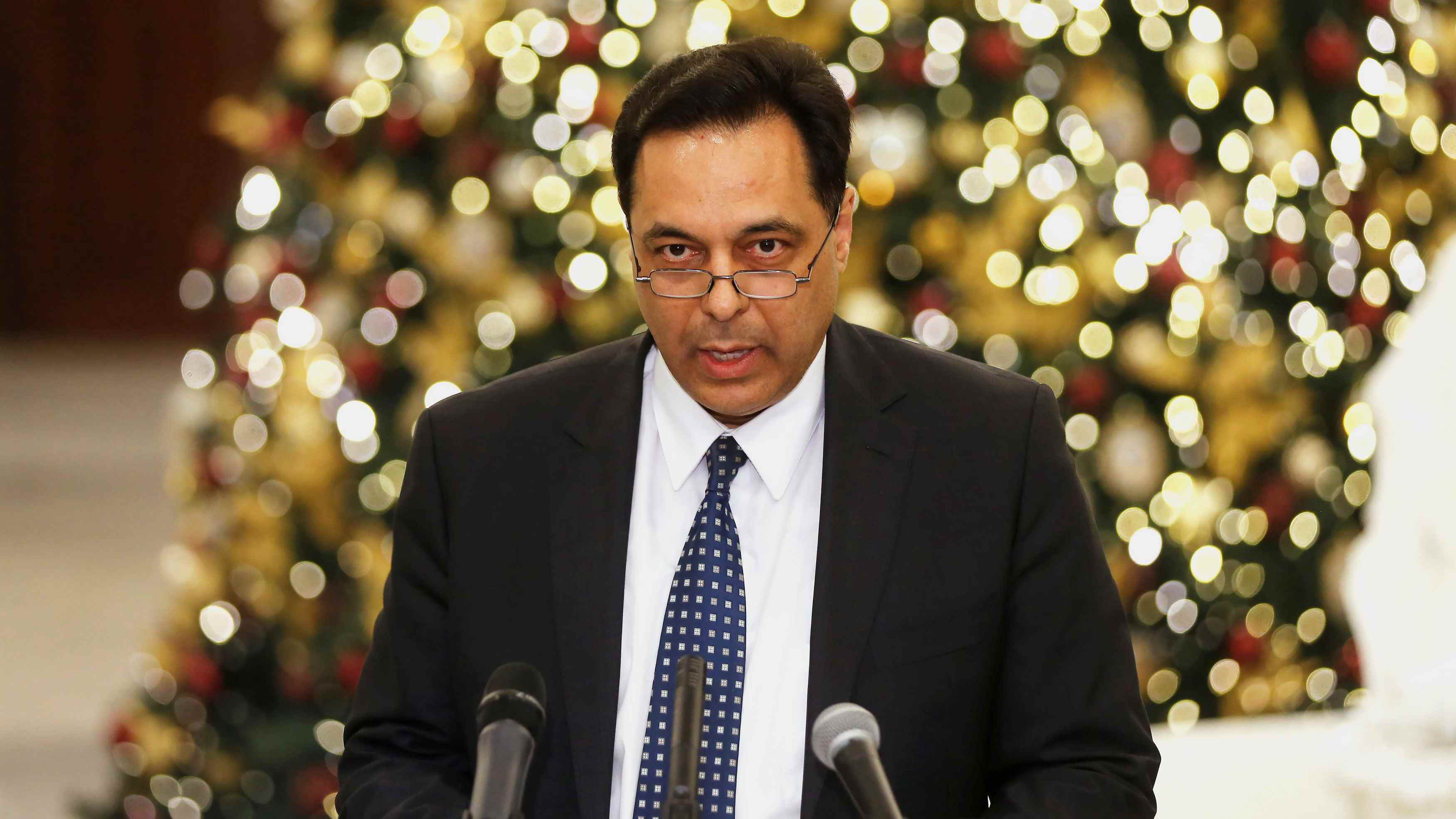
Hassan Diab talks to the media after being named Lebanon's new prime minister, at the presidential palace in Baabda, Lebanon, December 19, 2019. /Reuters Photo
Hassan Diab talks to the media after being named Lebanon's new prime minister, at the presidential palace in Baabda, Lebanon, December 19, 2019. /Reuters Photo
Crisis-hit Lebanon's president Thursday designated Hezbollah-backed academic and former minister Hassan Diab as the country's new prime minister, ending nearly two months of political wrangling.
The little-known 60-year-old engineering professor at the American University of Beirut (AUB) will replace outgoing Prime Minister Saad Hariri amid nationwide anti-government protests and the worst economic crisis since Lebanon's 1975-1990 civil war.
The self-styled independent was thrust forward as a candidate with the backing of parliamentary blocs affiliated with Shiite movements Hezbollah and Amal as well as the Free Patriotic Movement (FPM), founded by Christian President Michel Aoun.
"I will be consulting other parties and civil society protesters and listen to all opinions prior to government formation," Diab said after his meeting with President Michel Aoun and House Speaker Nabih Berri following his appointment.
Diab is expected to form a new government after he secured 69 out of the 128 parliamentary votes on Thursday.
But the career academic who held the education portfolio in a government formed after Hezbollah brought down a previous Hariri cabinet did not receive the backing of Sunni blocs or their own Christian allies.
His nomination, as a result, will yield a lopsided government that observers warn could fuel sectarian tensions and complicate efforts to secure international aid needed to pull Lebanon back from the brink of default.
Lebanon's National News Agency reported that thousands of demonstrators protested against the appointment of Diab on Thursday evening.
Protesters blocked roads in Beirut, Akkar, Sidon, Nehme, Tripoli and other regions, burning tires and clashing with security forces.
People in some of the areas even pitched tents, vowing not to leave the streets until the resignation of the new prime minister who is an ally of Hezbollah.
Diab addressed protesters by saying their "uprising represents me."
"I listened to your voices over the past 60 days which reflect the anger at the widespread corruption. Your demands should be considered as an alarm implying that we should never go back to the period before October 17," Diab said.
He noted that protests in Lebanon have created a new direction in the political life.
The new prime minister also called on the Lebanese to join in the measures to protect security and political stability.

Protestors block a road by burning barricades against the designation of Hassan Diab, Lebanon's newly named prime minister, in Beirut, Lebanon, December 19, 2019. /Reuters Photo
Protestors block a road by burning barricades against the designation of Hassan Diab, Lebanon's newly named prime minister, in Beirut, Lebanon, December 19, 2019. /Reuters Photo
A power-sharing system enshrined after the end of the civil war means the prime minister's position should be filled by a member of the Sunni Muslim community.
As the leading Sunni representative, the premier is usually backed by the community's main leaders.
But Lebanon's heavyweight Sunni politicians stopped short of backing Diab, raising fears that the next government will be polarized and unable to tackle urgent reforms demanded by protesters and the international community.
After Aoun's announcement on Thursday, dozens of men gathered outside Diab's house, chanting slogans in support of Hariri.
Most hailed from the mainly Sunni Tareeq al-Jadeedeh district, a stronghold of Hariri and his Future Movement.
"We are here to say that we reject Hassan Diab, because he was only endorsed by six Sunni lawmakers," one man told AFP, referring to parliamentarians outside the main Sunni bloc.
Hariri had in recent days been seen as likely to head a technocrat-dominated government – a key demand of protesters.
But he announced late Wednesday he was pulling out, saying his rivals opposed a cabinet of technocrats.
Hariri responded by calling on his supporters to refrain from taking to the streets.
(With input from AFP, Xinhua)